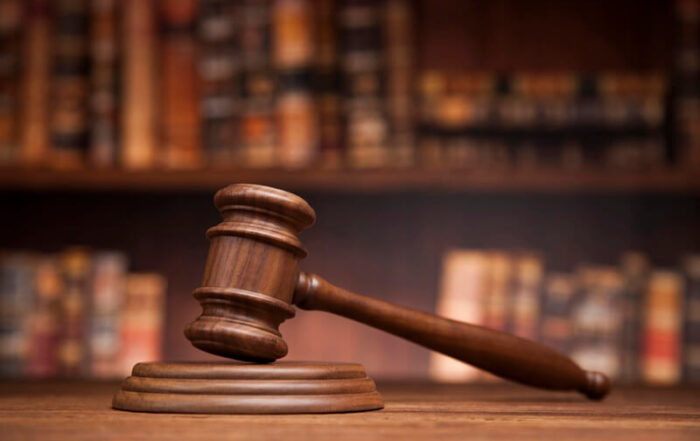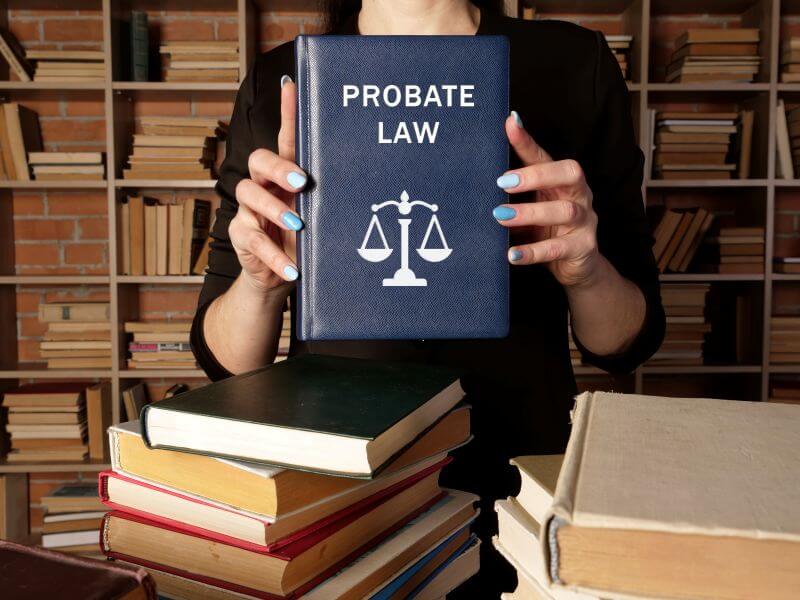How To Prove A Will Is Invalid In Probate Court
A will represents the final voice of a loved one, outlining their wishes for their property and assets. But what happens if someone suspects the will is unfair or improperly created? Challenging a will in probate court can seem like an uphill climb. Still, with the right approach, it is possible to prove its invalidity.
Imagine peeling back the layers of a story—every detail reveals whether the will stands on solid legal ground. Understanding the process is vital for those navigating this difficult situation in Los Angeles.
This article covers the legal reasons a will may be invalid, how to collect compelling evidence, and the probate process in California. It also highlights potential challenges and explains how skilled probate attorneys can help protect your rights.
Understanding The Grounds For Contesting A Will
Contesting a will isn’t as simple as voicing dissatisfaction with its contents. Courts require specific legal grounds to invalidate a will. Understanding these grounds is the first step in determining whether a challenge can succeed.
Lack Of Testamentary Capacity
For a will to be valid in California, testators must have had the mental capacity to understand what they were doing. They should comprehend the nature of their property, their relationships with heirs, and the consequences of their decisions.
Suppose the testator suffered from conditions like dementia or memory loss when creating the will. In that case, they may not have had the required clarity. It’s like trying to solve a puzzle without all the pieces—it’s impossible to make informed decisions.
Undue Influence
Undue influence occurs when someone pressures or manipulates the testator into creating a will that doesn’t reflect their true intentions. This could involve exploiting a vulnerable person’s trust, isolating them from others, or making significant changes to benefit one party. Think of it as someone holding the pen. At the same time, the testator signs—a will written under coercion undermines their genuine wishes.
Fraud Or Forgery
Fraud and forgery attack the very authenticity of the will. Fraud might involve tricking the testator into signing a document under false pretenses. Meanwhile, forgery involves creating or altering a will without the testator’s knowledge. Both scenarios result in a document that doesn’t accurately reflect the testator’s wishes.
Improper Execution
California law has strict rules for creating a valid will. It must be signed by the testator and witnessed by at least two impartial adults. A failure to meet these requirements could render the will invalid. It’s like building a house without a proper foundation—legal formalities ensure stability.
Understanding these legal grounds provides a foundation for your case. Once you identify the issue, the next step is gathering evidence to support your claim.
Gathering Evidence To Support Your Claim
A solid case to challenge a will’s validity requires gathering convincing evidence. Think of it as assembling a puzzle—each piece provides a clearer picture of the truth. Strong, relevant evidence strengthens your argument and increases your chances of success in probate court.
Medical Records
Medical records often serve as the cornerstone of claims involving testamentary capacity. They provide insight into the deceased’s physical and mental health when the will was created.
For example, diagnoses of dementia, Alzheimer’s disease, or other cognitive impairments can suggest a lack of capacity to make sound decisions. These records should be as close to the date of the will’s creation as possible to be most persuasive.
Witness Testimonies
Witness accounts can illuminate the circumstances surrounding the drafting or signing of the will. Friends, family members, caregivers, or lawyers who interacted with the deceased may testify about their mental state, behavior, or signs of undue influence. Witnesses can also confirm whether the required legal formalities, such as proper signing and witnessing, were followed during the will’s creation.
Professional Opinions
Professional analysis can provide an objective perspective that carries weight in court. Forensic document examiners can determine whether a signature was forged or altered. Medical professionals can assess whether a mental condition might have impaired the deceased’s capacity. These opinions often play a crucial role in convincing the court of the will’s invalidity.
Financial & Communication Records
Bank statements, emails, letters, and other communication records can reveal fraud or undue influence. Sudden changes in financial behavior, abrupt decisions, or communications showing coercion can support claims that the deceased was manipulated. These records can also help uncover irregularities tied to specific beneficiaries or executors.
Compiling this evidence requires careful planning and attention to detail. Each piece should align with your overall argument, creating a compelling narrative for the court. Once you have strong evidence, the next step is filing your claim and navigating the legal process.
The Legal Process Of Contesting A Will In California
Disputing a will is no small undertaking. It’s a deeply personal and legal challenge, whether driven by fairness, protecting loved ones, or addressing misconduct concerns. In California, this process is governed by strict rules and timelines, making a clear understanding of the steps essential.
At first glance, the legal pathway might appear complicated. Emotions can run high, relationships may fray, and the clock is always ticking. However, breaking the process into manageable stages allows you to approach it with a sense of direction and purpose.
Filing A Petition
The first step in challenging a will is filing a formal petition with the probate court. This document outlines your reasons for contesting the will, such as claims of undue influence, fraud, or lack of capacity. It includes any preliminary evidence you’ve gathered.
Acting promptly is critical since California law enforces strict deadlines. Generally, a will must be contested within 120 days of being admitted to probate. Missing this deadline may result in your case being dismissed outright.
Discovery Phase
Once the petition is filed, the discovery phase begins. Consider this the investigation stage, where both parties exchange relevant documents and information. Depositions may also be conducted to gather sworn testimony from witnesses.
Discovery provides an opportunity to uncover new evidence, such as suspicious financial transactions or communications, and challenge the opposing side’s claims. It’s a critical step in building a strong case.
Mediation & Settlement
Mediation is often encouraged during probate disputes as an alternative to a full trial. In this process, a neutral mediator works with both sides to negotiate a resolution.
Settlements reached in mediation can save time, reduce costs, and spare families the emotional toll of a trial. However, mediation requires compromise, which may not always align with your goals. If no agreement is reached, the case proceeds to court.
Trial Proceedings
Both parties present their evidence and arguments before a probate judge during the trial. Witnesses may testify, and professionals such as forensic examiners or medical professionals might provide their opinions. The judge evaluates the evidence to determine whether the will is valid. Their decision will settle the matter unless appealed.
Contesting a will requires navigating deadlines, legal formalities, and courtroom procedures. A clear understanding of the legal process helps anticipate common challenges and how to address them during a will contest.
Potential Challenges & Considerations
Challenging a will can feel like stepping into unfamiliar territory. It’s a process that comes with its share of legal and emotional obstacles. Whether you suspect foul play, question the fairness of the distribution, or have concerns about the document’s validity, knowing what lies ahead is essential. The decisions you make early on can shape the outcome and either strengthen or jeopardize your case.
Burden of Proof
The burden of proof falls on the individual contesting the will. This means you must present convincing evidence that the will is invalid. California courts require clear and credible evidence, and weak or unsupported claims are unlikely to succeed.
Statute Of Limitations
Time is of the essence when contesting a will. In California, a will contest must generally be initiated within 120 days of the will being admitted to probate.
Missing this strict deadline could result in the court refusing to hear your case, no matter how compelling your evidence. Acting promptly and consulting with legal professionals early can help you avoid this pitfall.
No-Contest Clauses
Many last wills include no-contest clauses intended to deter disputes. These clauses can penalize beneficiaries who challenge the will by disinheriting them if they lose.
However, California law limits the enforceability of such clauses in specific circumstances. For instance, if your claim is based on evidence of forgery or undue influence, the clause may not apply. Understanding the potential risks of a no-contest clause is crucial before proceeding.
Addressing these challenges requires careful planning, thorough evidence-gathering, and strategic thinking. Each obstacle presents an opportunity to strengthen your case when approached with preparation and clarity.
With a clear understanding of potential pitfalls, legal guidance can simplify the process and help protect your interests during a will contest.
How Los Angeles Probate Attorneys Can Assist 
Navigating probate disputes can feel overwhelming, especially during an emotional time. Our legal support at Los Angeles Probate Attorneys helps ease the burden while focusing on achieving a fair outcome.
Our experienced attorneys offer an unbiased perspective and guide families through the complexities of probate law. We manage tasks like filing petitions, collecting evidence, and representing you in court. Handling procedural requirements ensures your case is as strong as possible.
Moreover, having someone knowledgeable in your corner lets you focus on personal matters rather than legal stress. Our lawyers tailor strategies to your situation, working toward a resolution that reflects your best interests.
With experienced counsel, you gain peace of mind knowing their case is in capable hands. Partnering with Los Angeles Probate Attorneys can make all the difference if you’re dealing with will disputes.
Summary
Proving an invalid will require a solid understanding of legal grounds, collecting strong evidence, and navigating California’s probate process. Lack of testamentary capacity, undue influence, fraud, and improper execution are common reasons for contesting a will.
Building a case involves gathering medical records, witness testimonies, and financial documents while understanding potential challenges like the burden of proof and deadlines. The legal process includes filing a petition, engaging in discovery, and, if necessary, attending trial.
Legal guidance can provide clarity and confidence for Los Angeles families facing probate disputes during this difficult time. To protect your rights and find a resolution, consult a trusted Los Angeles probate lawyer today.










